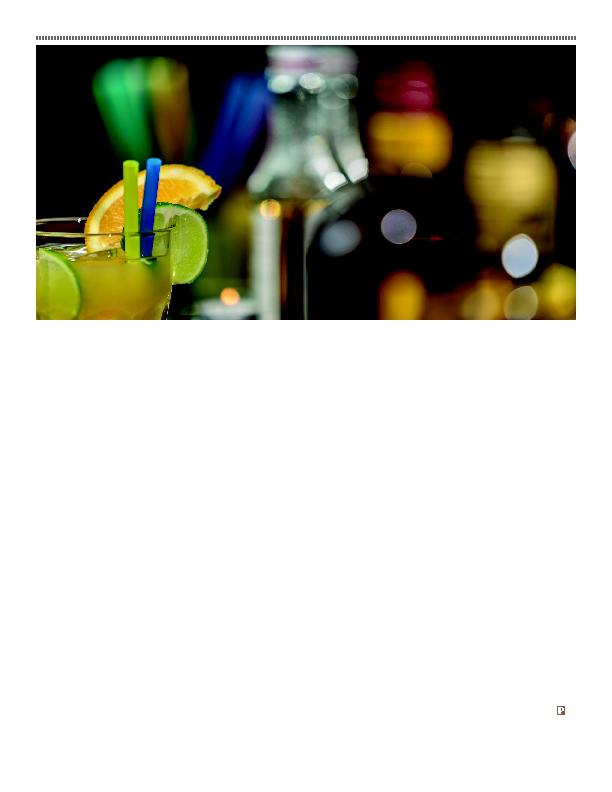
reminders to the employees before
and at the event. Messages like
"Drink responsibly," "Don't drink
and drive (with free taxi info on it),"
"Report inappropriate conduct to a
manager," etc.
d'oeuvres, finger food and lighter
meals make the cocktail the center of
the event. Plaintiff's bar also argues
that smaller portion sizes leads to
increased intoxication.
to argue your company endorsed
drinking to the point of intoxication
when the event is a Wednesday
lunch. A Friday dinner opens more
liability. And if your company event
is during "happy hour" (at a bar) or
an "after-party" it will be hard for you
to argue alcohol was not the primary
tool in building camaraderie.
night of heavy drinking. Consider a
restaurant, without a night scene, and
eat a proper dinner at a table.
water-cooler? What is the implied
meaning of "come out and have some
fun?" This means one thing for a
baseball game and another at a sports
bar at 8 p.m.
drink tickets per person, don't base
the number on your budget instead
focus on responsible drinking. For
example, if the average person
processes one drink an hour, giving
your employees one drink ticket per
hour might demonstrate to a jury
your company believes in responsible
drinking. Then when your managers
are deposed, they can articulate this
rationale.
the "official" event is over, then keep
to it. Have managers and supervisors
signal the end (again, not babysitting,
but an overt signal that the
sanctioned company event is over).
One court has found if employees
and supervisors continue to drink
after the company party, subsequent
actions are less likely to be linked
back to the company event.
the employee became intoxicated
solely at Marriott's party; here, the
employees and supervisors visited
multiple bars after the company
event, i.e. intoxication was not
exclusively at the company event.
transportation home, period. This is
less expensive than a wrongful death
suit (and easier on the conscience).
event is more than just location and
cost. Plan out contingencies, assume
individuals will become intoxicated, and
take reasonable preventative measures to
protect your employees and the public.
This article is not saying you have to
apply all these factors, but you must
think about them when planning. If
employees get intoxicated at your event,
how will a jury look at your company's
message? With intentional planning
and proper supervision, you can build
team morale, strengthen your company's
work force, and protect your company's
interest along with everyone's safety.